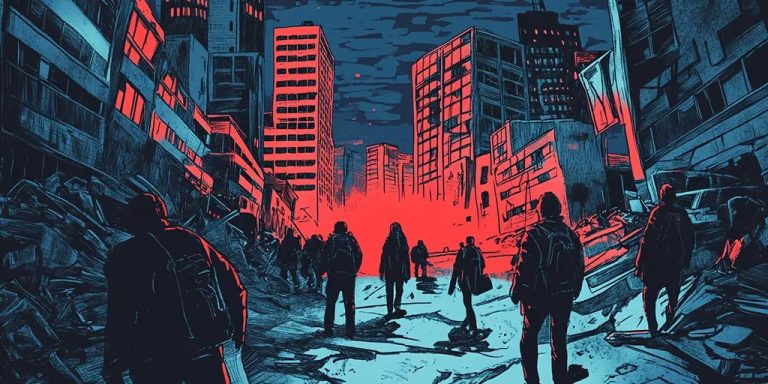from CFACT
David Wojik
The cold kills, and the U.S. faces a huge risk of deadly sub-zero blackouts. Renewable energy is part of the problem, but natural gas is the biggest part. We now know that the supply systems that power gas-fired power plants can be unreliable during extreme cold weather.
The switch from coal to natural gas leaves us vulnerable to cold weather power outages. We need a program to address and fix this vulnerability. Action is needed at both the state and federal levels. New coal-fired power generation may be part of the answer.
Vulnerability to extreme cold was hit hard for the first time in 2021 during the catastrophic blackouts in Texas. Power outages caused by winter storm Uri killed hundreds, with estimates ranging from nearly 250 to more than 700, as 4 million people were left without power for days in subfreezing temperatures. According to a lawsuit filed by Texas insurance companies, insurance claims for losses caused by long-term power outages have reached $10 billion.
The crisis began around 1 a.m. on February 15 when there was no solar power available and winds were light. Gas-fired power generation gradually fails due to the cold. Texas has systematically reduced reliable coal baseload power. With 69% of electricity generated using natural gas or wind, system failures triggered the crisis.
Our nation’s vulnerability became apparent when PJM nearly lost power during Winter Storm Elliott in late 2021. With little renewable energy capacity, the natural gas supply system is almost paralyzed. We now know that the switch from coal to natural gas makes the United States highly vulnerable to deadly subzero blackouts.
Unfortunately, Elliott's weather was mild compared to previous storms, and it's these extreme cold conditions that should be a focus for power system managers. For example, Elliott caused a temperature of minus 5 degrees in Pittsburgh, but the storm's low in January 1994 was minus 23 degrees. In 2015, the worst storms had colder minimum temperatures than Elliott but we still had a lot of gas.
According to NERC's December 2023 long-term reliability assessment, PJM looks comfortable with a 30% reliability reserve margin during “normal” weather. Elliot's cold completely eliminated this feeling. If the weather had been colder, the situation would have been worse. NERC needs to assess this vulnerability, not just the vulnerability to average weather.
But it is the states that are responsible for generator reliability. Every state should activate cold weather outage prevention plans now. That means at least carefully assessing their vulnerability to the extreme cold they've seen before. Then take the necessary steps to prevent deadly cold-induced outages. These temperatures will be below zero in most states and well below freezing in many states.
Especially now is the time to put coal back on the table. The on-site power nature of coal power makes it immune to cold weather power outages.
We haven't built a coal-fired power plant in many years, so first we need to find the latest technology. China may be the leader, but India is also a good choice. Indians are great engineers.
Additionally, coal power is grossly overregulated, so some regulations need to be repealed. I'll start with the mercury emission limits, which the EPA happily admits are not based on science. The same goes for ghost PM2.5, which isn't even a specific substance.
We should also strengthen research on coal combustion. For years, the U.S. Department of Energy’s fossil fuel programs have been misdirected toward carbon capture. Let's get back to power generation.
Small modular nuclear reactors would also fit here. They also don't have a fuel supply that's susceptible to extreme cold. Of course, the gas supply system should also reduce vulnerability.
In short, there is still a lot of work to be done to protect the United States from deadly blackouts caused by extreme cold. The threat is clear.
NOTE: A small portion of this article was adapted from my original call to action in Penn State. See “Avoiding Deadly Blackouts: How to Protect Pennsylvanians During Winter Storms,” at https://www.commonwealthfoundation.org/research/avoiding-deadly-blackouts/
Relevant
Learn more from Watts Up With That?
Subscribe to have the latest posts delivered to your email.
